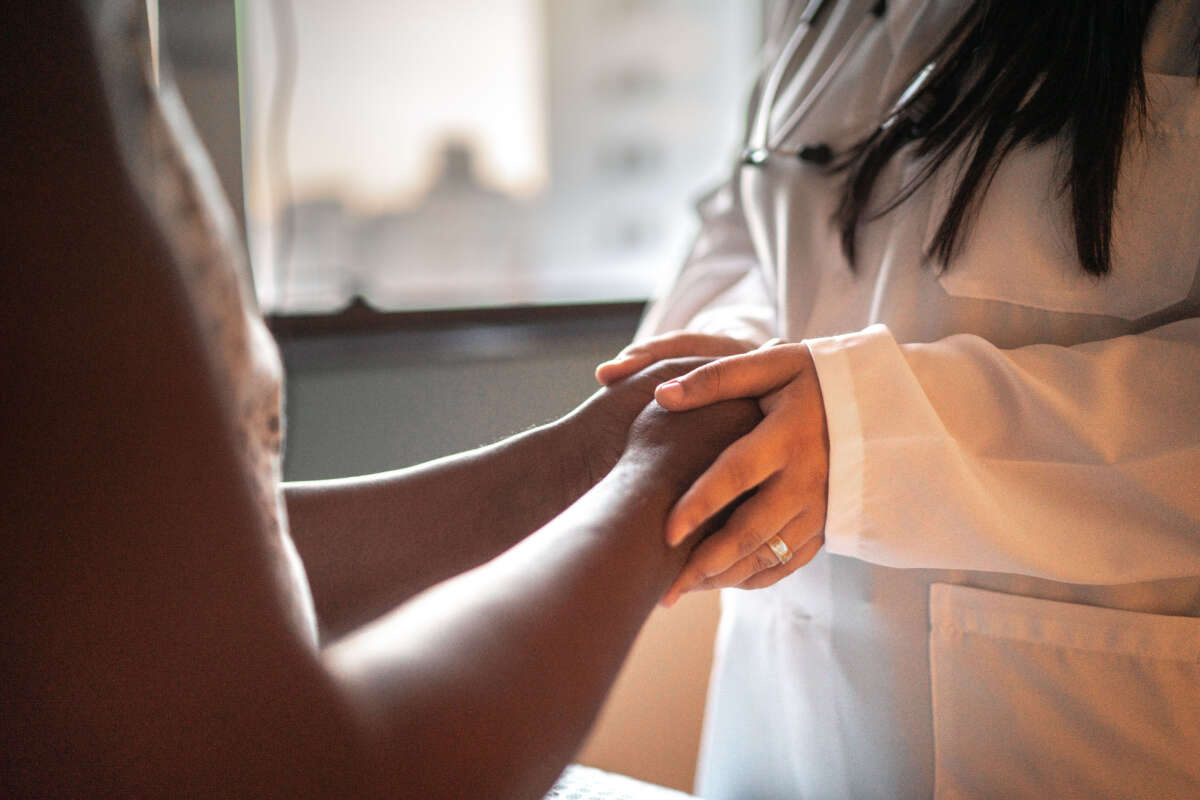A recently released report details an unfolding “constitutional, human rights, public health, and medical ethics crisis” in Louisiana, caused by the state’s abortion ban.
“Clinicians across the state time and again underscored the impossibility of prioritizing patient care under the state’s draconian laws and the many harms this untenable situation results in for pregnant Louisianans,” the report says.
Under Louisiana’s current abortion ban, health care providers risk civil and criminal penalties if found in violation of the law. The report, “Criminalized Care: How Louisiana’s Abortion Bans Endanger Patients and Clinicians” found “alarming” problems with pregnancy care after the enactment of the abortion ban. The report found that after the enactment of Louisiana’s abortion ban, pregnant people in the state have undergone hazardous and needless surgeries, been refused timely care for miscarriages and ectopic pregnancies, and have been forced to postpone abortions until their lives are endangered.
“This anonymized fact-finding and research shows how the bans’ narrow and ill-defined exceptions create confusion, uncertainty, and fear for both pregnant patients and clinicians, who face significant professional, civil, and criminal penalties for providing the patient-centered and compassionate care they were trained for and could legally offer before Roe was overturned,” the report says.
The study, jointly created by Lift Louisiana, Physicians for Human Rights, Reproductive Health Impact, and the Center for Reproductive Rights, is based on interviews conducted in 2023 with 30 health care providers and 13 patients.
“This research reveals that Louisiana’s abortion bans erode clinician’s ability to use their best medical judgment to treat patients, cause delays and denials of abortion care, postpone prenatal care, and create dual loyalty for clinicians who must navigate their duty to patients and fear of criminalization,” Lift Louisiana says on its website.
The report details that some doctors have pressured women experiencing preterm premature rupture of membranes, a condition where the amniotic sac ruptures prematurely before the fetus is viable, to undergo dangerous Cesarean surgeries rather than offering them abortion procedures or medication, in order “to preserve the appearance of not doing an abortion.”
“Before … providers felt comfortable with what would be considered standard of care. But since there’s now the abortion ban[s], there’s concern about their ability to provide an abortion even though that still is standard of care for a 16-week pre-viable preterm premature rupture of membranes,” a maternal-fetal medicine specialist said. “In terms of care, that still has to be an option. It’s always an option. But now providers are afraid that offering or providing that care … [we] can face criminal penalties”
Additionally, the report says that Louisiana’s abortion ban has compelled health care providers to postpone or refuse abortion services to pregnant patients facing critical health complications or receiving severe fetal diagnoses in potential violation of federal law.
“To avoid the risk of criminal penalties under the bans, nearly every clinician relayed an account in which they and/or their colleagues delayed abortion care until complications worsened to the point where the patient’s life was irrefutably at risk,” the report says.
As reproductive rights and justice activists had anticipated, the report also shows that historically marginalized groups have been disproportionately impacted by the state’s abortion ban.
“[W]e’re in a state of panic and trying to understand. [The bans are] literally reshaping how we experience health care as Black women and women of color. White women in our state are not feeling that in the same way,” one patient said.
Patients, clinicians, and community-based organizations interviewed for the report all stressed that the bans have worsened Louisiana’s existing maternal health crisis and have had a disproportionate impact on historically marginalized communities, such as people of color, low-income people, and people living in rural areas.
“The bans also undermine the reproductive freedom of these same communities and perpetuate a legacy of reproductive oppression in the state. These harms constitute serious violations of existing federal guarantees — including constitutional rights — as well as international human rights laws,” the report says.
Media that fights fascism
Truthout is funded almost entirely by readers — that’s why we can speak truth to power and cut against the mainstream narrative. But independent journalists at Truthout face mounting political repression under Trump.
We rely on your support to survive McCarthyist censorship. Please make a tax-deductible one-time or monthly donation.
